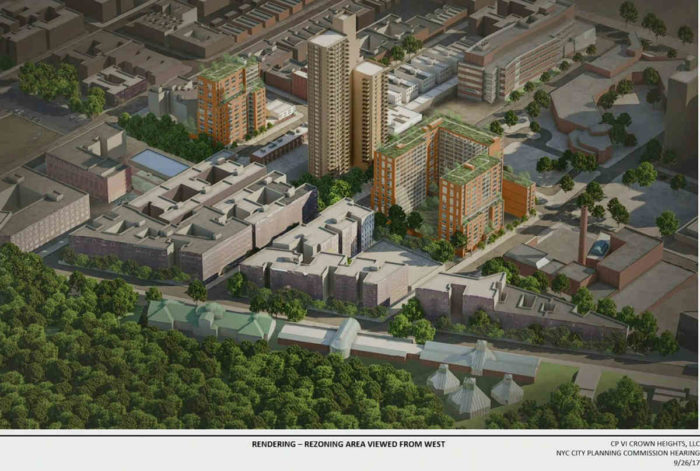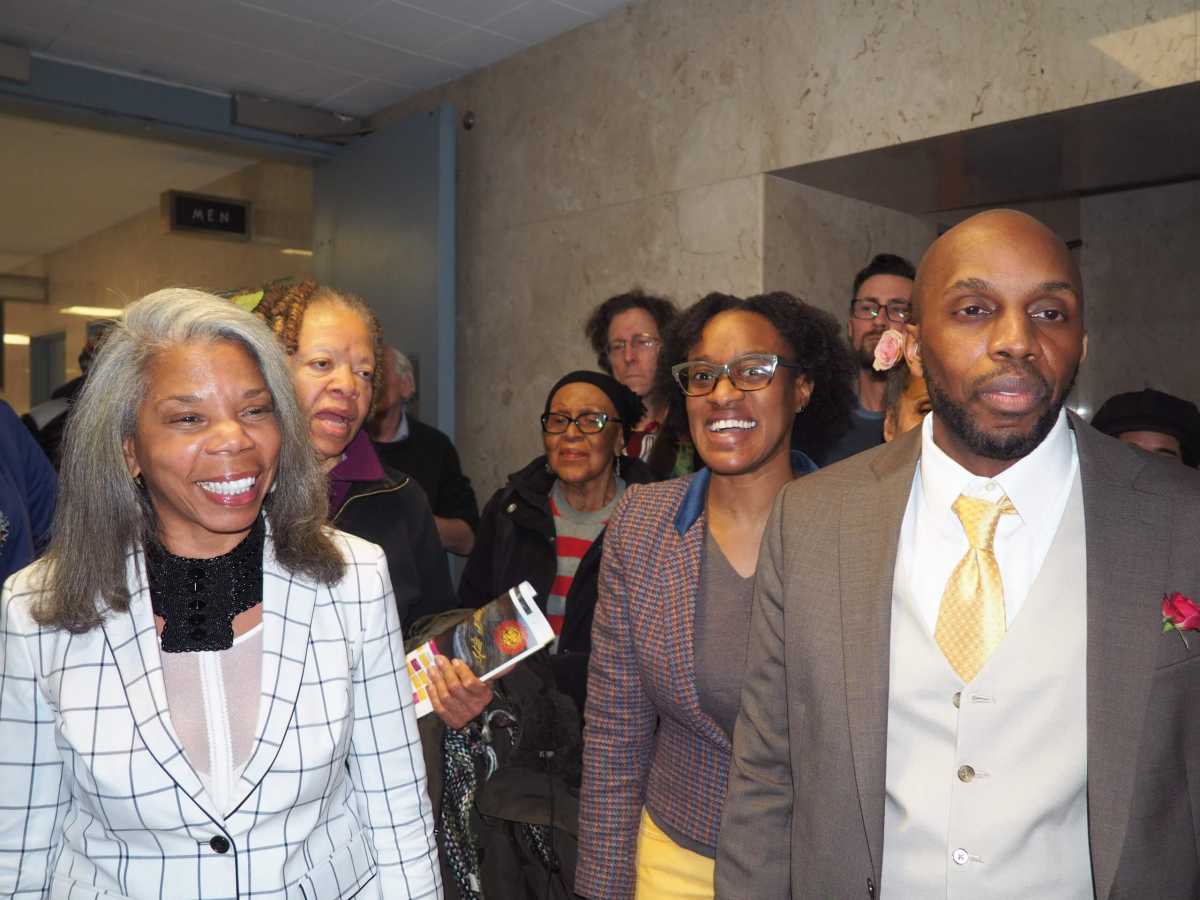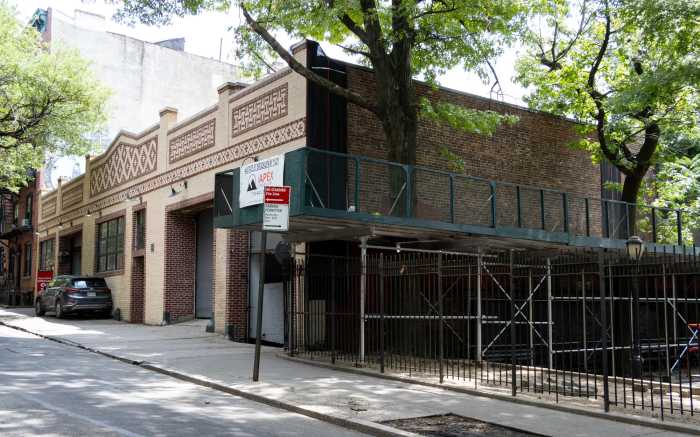A State Supreme Court justice denied Crown Heights developer’s requests to move construction equipment onto their sites, in a minor victory to anti-development activists seeking to halt the projects.
Activists have accused Carroll Plaza Development — the developer behind one of the residential towers located at 931 Carroll St. — of violating the restraining order by performing preliminary construction work including soil excavation at the site. On Jan. 9, five activists were arrested trying to block dump trucks from entering the property.
Due to the activity at the site, activists have schemed to file criminal charges of contempt of court against the developers, along with a temporary bond injunction, which is slightly stronger than a temporary restraining order. A motion for the injunction has been scheduled for April.
The restraining order stems from a lawsuit Boyd brought against developers behind the two 16-story towers and the City of New York, who she accuses of failing to conduct a thorough environmental impact statement before approving a controversial rezoning necessary for the housing project to move forward.
Activists have long complained that the developments — which also include a tower at 40 Crown St. —would cast harmful shadows onto the nearby Brooklyn Botanic Garden, although the garden itself disputes those claims.

After the hearing, Boyd cheered the decision, saying it was a necessary step towards making sure the restraining order was not broken.
“We know these developers have been very slimy and slick with their interpretation of our temporary restraining order,” she said. “The moment you allow them to start doing little things, they stretch the envelope.”
Lawyers for the developers slammed the activists for delaying the project, which includes 140 units of so-called “affordable” housing.
“They’re preventing people from moving into these homes, it’s really a tragedy,” said Richard Lobel, an attorney for Carroll Development.
Councilwoman Laurie Cumbo (D—Crown Heights) — who was instrumental in approving the developer’s rezoning application — boasted of negotiating a “miracle deal” with the applicants that resulted in a significant increase in the amount of affordable housing included in the project. However, a subsequent Brooklyn Paper investigation revealed that the city was unable to produce any verifiable evidence of the deal’s existence.
Correction: An earlier version of this article stated that construction materials were ordered removed from the site, and misstated the number of affordable housing units included in the projects. It has been updated to reflect that correction.
























